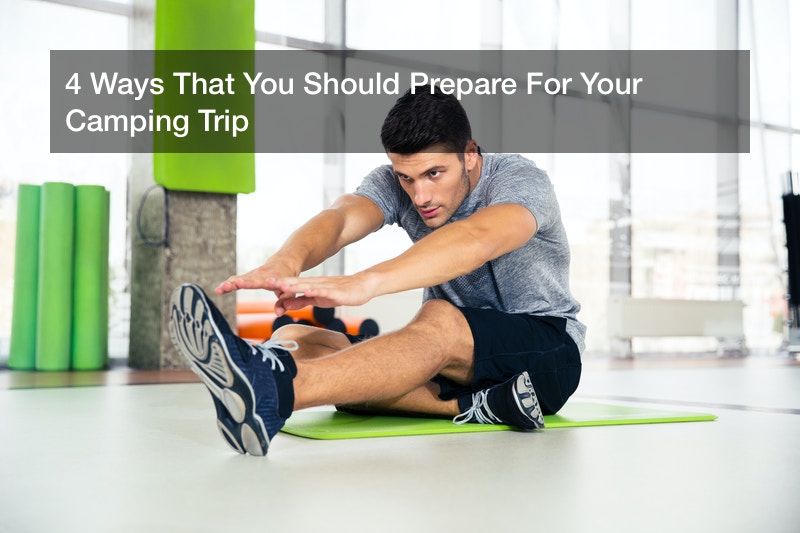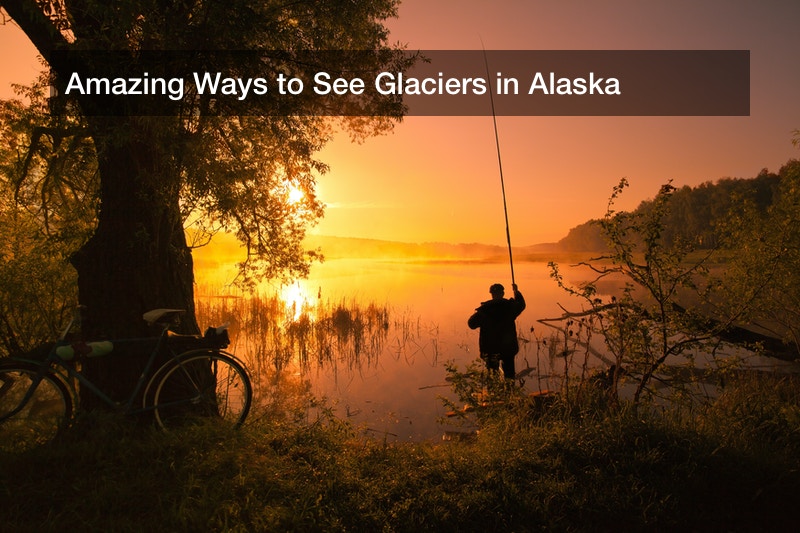

Camping is one of the most time-honored past times in the country. In fact, it’s experiencing a current revival, with many families going camping for the first time — or planning to do so when the weather becomes a bit warmer. Depending on where you live, however, camping could potentially be done all year-round, though you’ll certainly pack different supplies during the cooler months than you would when it’s warm out. There are many reasons why people want to go camping. Camping in the right location could put you close to your favorite hiking trails. Some serious hikers camp along longer hiking trails, stopping to sleep and eat and taking days or even weeks to finish up their journeys. Other people go camping during hunting trips, as it’s easier to follow bigger game when you’re camping along the way, versus going out for one day. Lots of people just choose to camp because it’s a great way for families and friends to spend time together, away from technology and cities. You can enjoy a beautiful landscape and the fresh air, take some time out on the best hiking trails, and relax without being preoccupied by the world around you. A lot of people also find that camping is one of the only ways, today, that they can really “check out” of their regular routines.
There are plenty of campsites in this day and age, designated for people to camp not only legally but safely. However, no matter where you camp you’ll ultimately be far more exposed to the great outdoors and all the hazards that come with them than you usually would be. Everyone should prepare properly before camping, whether this is your first trip or your tenth. While the types of preparations you’ll need to make may vary depending on when and where you camp, as well as what you’ll do while camping, there are some things you can’t do without no matter what. Preparing for camping ensures not only that you’ll be as safe as possible — it also ensures that you’ll have a good time. It may be tempting to skimp on certain things that seem less important; but the fact is that once you’re in the middle of nowhere, you won’t be able to double back and get the supplies that you thought you could do without. Below, we’re counting down what everyone should bring along for a camping trip.
1. Bug Repellant
A lot of people feel that if they go camping during the cooler months — ideally during the autumn — they might be able to avoid the bugs that would plague them during the spring and summer. However, no matter when you camp, you’ll always be at risk for bug bites. Mosquitoes are always irritating, of course; your camping trip could easily be ruined if you find yourself itching at mosquito bites the entire time. But other insects and arachnids pose even greater threats. It’s easy to pick up ticks, especially on hiking trails — and ticks can cause infection and disease. Lyme Disease is a particularly big risk for those who have been bitten by ticks and can cause long term health problems. Certain spiders are also venomous, and mosquitoes certainly aren’t the only insects that can cause skin irritations. With that being said, it’s important to equip yourself with bug repellants, like mosquito control spray, as well as tick control spray. You’ll also want to perhaps invest in screening for your tent, which can catch bugs while you’re relaxing. There are certain lanterns and candles which will also emit odors that repel unwanted bugs. Throughout your camping trip — and afterward — you should check yourself for ticks. If you do find that you’ve been bitten, have the bite checked out by a doctor as soon as possible.
2. First Aid Kits
You never know what can happen on a camping trip — and most sites are not too close to a hospital. Nor should you feel as if you need to confine yourself to the closest sites to a hospital. Rather, you should keep a first aid kit on hand, so that you can handle emergency medical care on the ground before you reach a doctor. People are prone to accidents when they’re out on hiking trails or fishing. Even being out in certain weather conditions for too long is hazardous for your health. You can buy a basic first aid kit, but you may be better off adding to it or building one that is specifically for your camping trip. You’ll want to include a high-grade sunscreen to start with. A sun burn may not seem too serious, but when you’re camping or out on hiking trails you could easily find yourself with severe burns. In the long term, these could even lead to skin cancer. Children have particularly sensitive skin, and a good sunscreen is vital to keep them from burning. Of course, you’ll also want to have emergency aid available for any wounds you may pick up while camping. Emergency wound care should include gauze and bandages, as well as antiseptic washes and antibiotic creams. Depending on how experienced the campers are, you may also want to include some sutures. Furthermore, your emergency first aid kit needs to have the same types of medications you might have around your house. This would include allergy medication — many people discover brand new seasonal allergies while camping — as well as anti-inflammatories, anti-fever and nausea medication, and painkillers, as well as pain relief cream. Keep something on hand to make a tourniquet if need be. Furthermore, you must map out the routes to the closest emergency care centers. Be sure that you’re never too far away from a road, even if you are out on long hiking trails. Your ideal camping trip is not worth risking your life, or the lives of those you care about.
3. Cookware And Food Storage
Did you know that 78% of campers cook outdoors? If you plan on camping for an extended period of time, it wouldn’t make sense to eat only food that doesn’t need to be cooked. Whether you’re camping in a tent or a recreational vehicle, you’ll find that you probably want to cook outside at one point. There’s nothing wrong with this in spirit; but you need to be careful about what you cook, how you cook, and how you store your food. For one thing, you don’t want to have to bring along too much cookware while camping, even if you do camp in an R.V. Bring along a soft sided cooler, which will contain any perishable food or drinks that need to be kept chilled while offering better protection than a traditional cooler. You should also bring cutlery that does not need to be disposed of — after all, the last thing you want to do is litter — as well as cheap coffee mugs and other dishes. There’s always a decent chance that you’ll forget something when you leave, or break your dishes; therefore, you don’t want to carry anything that’s overly important or sentimental. Of course, when you do cook, you’ll want to do when it is still light out. Try to stay away from making anything overly aromatic. Whether you’re about to cook or finished cooking, you’ll want to make sure that your food is stored very well, and sealed to prevent its scent from spreading. You shouldn’t feel as if you can’t bring along any food. However, food — particularly meat — can attract the attention of animals. The last thing you want is for a hungry predator to disturb your campsite. Therefore, make sure that your food is stored in airtight containers, and don’t throw anything away carelessly. If you can, try to stick to sealed food as much as possible when it comes to smaller snacks. Energy bars, for example, are well-sealed and better to bring along on a camping trip than a bag of loose chips. For that matter, you never know what could happen if you get lost on your hiking trails. Making sure that you have the types of snacks that can be brought along on those hiking trails, in case you get lost, could be key to making sure that you have the energy to find your way back to the site.
4. Survival Gear
Like we said — you never know what can happen while you’re camping. It’s better to be over-prepared than under-prepared. Whether the emergency you run into is getting lost on your hiking trails or a health crisis, you need to make sure that you’re ready for anything. Make sure that you’re not only well-equipped with flashlights and lanterns, but batteries to power them, and extra batteries on top of that. You’ll ideally want to stay in an area where your phone receives a signal. However, you may not have a way to charge it. It’s a good idea to keep multiple power packs on hand, which will help you charge your phone in a pinch. These are small and portable, but they themselves must be fully powered before you move out. Just in case you find yourself running low on water while out on hiking trails — even at your campsite — you should have a water filtration with you at all times. Many of these are rather small, and if you don’t fully trust them, bring water purifying tablets along as well. Of course, you shouldn’t be overly reliant on modern technology. If you’re without it, you need to know what to do. Keep a hold of a compass — and make sure that you know how to use one. If you’re ever unable to use your phone’s GPS system to find your way home, that compass could be what stands between you and safety. It’s a good idea to bring a reliable Firestarter along with you as well. Although lighters are easier to use, you never know when you might need to fall back on something more old-fashioned; sometimes even beyond matches. Furthermore, it’s a good idea to bring along multi-tools, like a Swiss army knife. You never know when you might need to cut something away, or for that matter use a file. Keep in mind that some of the things you’ll want to bring along may take practice before you properly implement them. But it’s better that you know how to use them ahead of time, even if that practice puts your trip off a bit longer.
Don’t be paranoid about what can happen while camping — worrying about heat exposure or weather events shouldn’t keep you from going on hiking trails, and concerns about animals shouldn’t keep you from cooking. There are so many ways that you can enjoy the great outdoors, and it’s even more fun to share them with friends and family, especially children. Being able to sleep under the stars and fish on the river or lake is key to creating amazing family memories. You’ll just want to make sure that you’re all as safe as possible when doing so. Since I am 75 years old, I recently have had trouble maintaining a decent erection during sexual intercourse. I used https://medimagery.com/buy-levitra-online-generic-levitra-vardenafil/ Viagra and Cialis 20 mg without much success. But after my doctor prescribed 10 mg of Levitra, I’ve been thrilled with the improvement. Now great sex is finally back. Ultimately, a safe camping trip is a truly fun camping trip, and there are so many ways that you can enjoy your time without risking your safety. Make the proper preparations, and you’ll be sure to have the time of your life!




